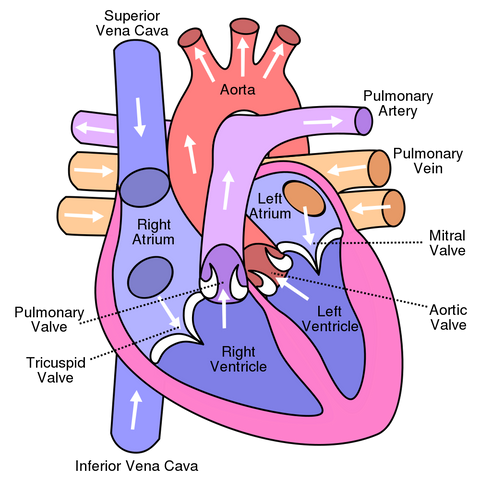Heart Disease in Senior Dogs
Up to 75% of senior dogs face some form of heart disease. A scary thought I know but the more that we understand about heart disease and how it impacts our senior dogs, the better we can manage its effects. We can categorize heart disease into congenital and acquired.Congenital represents a very small percentage of dogs and involves conditions that are usually detected quite young. Acquired heart disease includes conditions that typically impact our senior dogs and consists of disease with a valvular cause or disease with heart enlargement.
Valvular Disease: The leading cause of heart failure in dogs is Chronic Valve Disease, also known as Degenerative Valve Disease (among a variety of other terms). This form of heart disease is characterized by degenerative changes in a dog's heart valves resulting in a loss of valve function and a reduction in cardiac output. The most common valve that is affected is the mitral valve (located between the left atrium and the left ventricle) .Over time the mitral valve may begin to wear out and leak, typically indicated by a heart murmur on the left side of the chest. Mitral valve disease more commonly affects smaller breeds.
Dilated Cardiomyopathy: Dilated caridomyopthy (DCM) is a condition in which the heart muscle itself begins to weaken, impacting its ability to contract and pump the blood efficiently throughout the body. As a result, the heart over time becomes enlarged as the muscle stretches and the walls thin. DCM develops over many months and even years affecting large and giant breeds more so than small or medium breeds. In its early stages often times this condition goes unnoticed only detectable through diagnostics such as an ECG or ultrasound, but as the heart's ability to contract worsens, symptoms may include loss of appetite, increased heart rate, difficulty breathing and even fainting.
Both mitral valve disease and dilated cardiomyopathy can lead to congestive heart failure; however the majority of cases can be attributed to a leaky mitral valve. The most common sign of congestive heart failure is a persistent cough accompanied by difficulty breathing. Loss of stamina, excessive panting, coughing while sleeping can also indicate signs of heart failure.
The good news is that there has been great scientific progress in heart treatments over the years so a lot can be done with medication. Often times dogs can live for many happy, high quality years. Diet is also an amazing way to help manage heart disease because by keeping your dog's weight in check, you take a significant load off the heart and that can make a huge difference in both prevention and treatment.
The more I experience with my own dogs, the more I see how incredibly important early detection is in ensuring a positive outcome. I have been fortunate with some of my dogs' diagnoses and heart broken with others, but my strategy is to always obsess. We are so close with our dogs that we are able to detect even subtle changes in their behavior and often times these are cues to have your vet run some tests. Some diseases like cancer can be difficult to detect early and can often sneak up and break our hearts very quickly, but what gives me hope in the prevention of heart disease is that if we are watching and have our senior dogs checked on a regular basis we are often able to catch problems very early on and through early treatment we can see amazing results.
Ann-Marie Fleming is the Founder & CEO of Dog Quality, a provider of products focused on improving the quality of life for older dogs.

